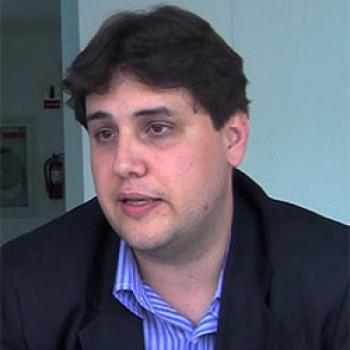marcos moraes

Late last year I was teaching a course on infrastructure finance, in a highly regarded University in Brazil and one of the students asked me, without context: “how to bring losers on board of a Public-Private Partnership project?”
It was a good question, particularly because it shed light on a very relevant aspect of PPP projects, one which the professional community discusses less than it should: There can be losers!
For example, entire communities can lose their houses due to the flooding of large areas needed for a new hydropower generating facility or small vendors that can loose demand due to a new turnpike being built a few miles away. In sum, the total costs of large infrastructure projects can be unevenly borne by some groups.
The choice of the PPP procurement route can also interfere on the distribution of costs of projects. By introducing private finance mechanisms, there can be groups that lose long-standing privileges such as rights of charging specific values of users. Also, the Private finance mechanisms often include contractual incentives to optimize managerial costs, which can increase pressure on the productivity of the labour and other resources.
In fact, good practice recommends that the selection of PPP projects should be preceded by a sound cost and benefit analysis that indicate a positive net benefit for the society. However, having a net positive impact only indicates that a project generates benefits that can address its costs and it does not guarantee that there will be no losers.
To turn a PPP project into a win-win game requires, thus, the careful and deliberate development of contractual mechanisms that distribute the benefits of the project in ways that those that bear its costs also appropriate some of the benefits!
So, back to the question of my dedicated student: How do we bring the losers on board? A direct answer is: We can turn them into winners. The rules that allocate the benefits can range from direct payment of compensations to more sophisticated incentives to the private operator such as specific output specifications (that meet some group’s requirements).
The greatest challenge, in my opinion, is not so much to design a compensation but to map the affected groups and to identify correctly their requirements, so the majority of legitimate interests can be accommodated into the PPP deal. This is why community consultation and other participatory techniques are so important! The preparation of PPP projects has to dedicate a serious amount of resources, including a professional and qualified team, to understand the needs of the people affected by the initiative, as a part of the general project appraisal and this assessment should be as central as the financial and legal due diligence[1].
So, in my opinion, the establishment of a sincere dialogue with the broader community is a necessary step to design PPP contracts that can decisively bring would-be losers on board, allocate the project’s benefits fairly, create a win-win situation and attract effective public support for PPP initiatives!
Written by PPP Certification Guide author, Marcos Siqueira Moraes
[1] The PPP Guide, which will be published as a part of the PPIAF sponsored PPP Certification Program (https://ppp.apmg-international.com//home.aspx) has a specific section on Social Impact Assessment and recommends a test of Social Feasibility as a criteria for the approval of PPP initiatives!

Marcos Moraes
Marcos Siqueira is a recognized expert in PPPs in Brazil, with a multidisciplinary background and over ten years of hands-on experience preparing and managing PPP contracts.
Marcos began his career as financial advisor for governments and was later hired by the government of Minas Gerais, in Brazil, to promote a program to attract private investment in infrastructure. This turned out to become the first PPP Unit in the country, responsible for the delivery of one of the most diverse PPP programs in Brazil. While Marcos was its CEO, the PPP program of Minas Gerais and its projects received several national and international awards for their technical excellence.
As an infrastructure professional, Marcos personally managed over US$ 3 billion worth of transactions in sectors such as transport, social infrastructure, energy and environmental assets. Marcos has had a diverse international experience, being involved in capacity building initiatives in Africa, Latin America and Asia. He has been an associate professor of public policy in Fundação João Pinheiro and Fundação Dom Cabral.
Since December 2014, Marcos is a consultant of the Inter-American Development Bank in a large-scale initiative aimed to compare institutional environments for PPP in several countries.
Marcos holds a bachelor degree in law and public administration. He also received a Masters degree in Public Policy from the University of Sheffield, in the UK.

